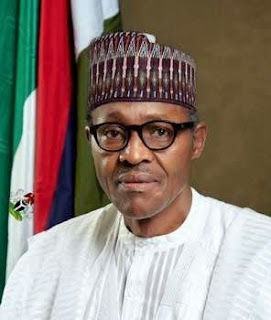Buhari Does Not Want To Be Called A Statesman By Sonala Olumhense
Days after General Muhammadu Buhari won Nigeria’s presidential election in 2015, I participated in a meeting in a United Nations office.
Everyone was on time, but the meeting began late. Nigeria was in the air. The two Nigerians, one of whom was to chair the meeting, were treated rather like rock stars. Nigeria was about to C-H-A-N-G E! A Daniel had arrived!!
My heart had always pounded at the prospects of a transformed Nigeria, but those months between the election and the inauguration were special.
It is now one year since I announced giving up on Buhari, after just two years. I had supported his candidature for president in 2011 and 2015, arguing it was superior to his principal rival, the incumbent Goodluck Jonathan. In addition to Mr. Jonathan’s deep weaknesses as a leader, he also bore the burden of the 15-year scorched-earth ethical record of his ruling Peoples Democratic Party (PDP), of which he had emerged both symbol and flag-bearer.
The choice before the voter was not complicated, and Nigerians widely chose Buhari.
The choice before Buhari, once he assumed leadership, was even less complicated. It was squarely to provide leadership: the purposeful, principled leadership about which he had bragged and pleaded since he was ousted in 1985 as military Head of State, 30 years earlier.
In the intervening years, Buhari often offered the image of a nation he would bless with his leadership. Sometimes, he reminded you of the wonderful 20th-century poem by British diplomat Sir Cecil Rhodes, “I Vow To Thee My Country,” which began:
“I vow to thee, my country, all earthly things above, entire and whole and perfect, the service of my love: the love that asks no question, the love that stands the test, that lays upon the altar the dearest and the best…”
Indeed, FEEEDS (Food Security, Education, Environment-Energy, Economics, Development-Democracy & Self-help) called Buhari’s inauguration address The Buhari Doctrine. In an article to mark the event, former United States ambassador to Nigeria Robin Renee Sanders described Buhari’s speech as “a mission statement, [a] roadmap…to make real, sustainable change happen.”
She celebrated two landmarks in that address: “I belong to everybody, and I belong to nobody,” and the “past is prologue,” urging the international community, to “support President Buhari and Vice-President Osinbajo to implement their positive mission for the nation.”
That was the level of the worldwide acclaim for Buhari, the sky-high expectations and even support. And yet, just three years later as he prepares to run for a second term, he is being derided as much internationally as he is locally; and as much by his former supporters as by his detractors.
It has taken me a while to understand what happened to the man some of us heralded as poised to lead Nigeria into light. And I think I know why: we have focused too much on those expectations, and not enough on Buhari’s expectations of himself.
The truth, in my view, is that Buhari’s colossal collapse is less about those mountains and more about what he was about to become: an icon.
The first sign of trouble, some people say, was that it took him nearly six months to assemble a cabinet. That is not true; that was just an undiagnosed symptom of the malaise. The first sign was that when he left his inauguration in Abuja, he needed a nap instead of a trip to the office to lace up his gloves and commence the new day he had advertised for 30 years.
Worse still is that he never really woke up from that nap. And then the amnesia. Here was a man who wanted to work in Aso Rock so much he forged a 100-day pact with the people as a means of getting there. And yet the moment he took that oath of office, he no longer acknowledged the covenant let alone pretend to implement it.
That is what happens when a speech is mistaken for manual labour and sleep is needed to recover from it.
In that UN office in 2015, I listened to non-Nigerians speak of Buhari with a sense of excitement. On foreign television stations, people applauded the new Nigerian leader. In the White House, President Barack Obama praised his strength and character.
Buhari watched and heard it all, with a smile. And then, I imagine, with a frown as the implications dawned on him: he was in danger! He was being confronted with a metamorphosis! He was in danger of becoming…a statesman, joining the firmament of leaders who win perpetual acclaim.
That is the spectre which changed the Buhari narrative. Because if you pay close attention, his performance in office since that time deteriorated. Rapidly.
There is no other explanation. He didn’t really need to do more than to remind everyone they knew what he wanted and had promised to accomplish. In his three years, however, he has created as much dismay and dissonance with what he has not done as he has with what he has done. His actions, measured against his proclamations in the past 30 years, particularly in his presidency-seeking years, show he has shrunk increasingly, almost unrecognizably.
All of this may have been, well, okay. He is a politician. But if he seeks re-election, he will no longer be just a politician or an office-seeker, he will be a man looking at himself in a mirror where his three years in office are at once prologue and epilogue.


Comments
Post a Comment